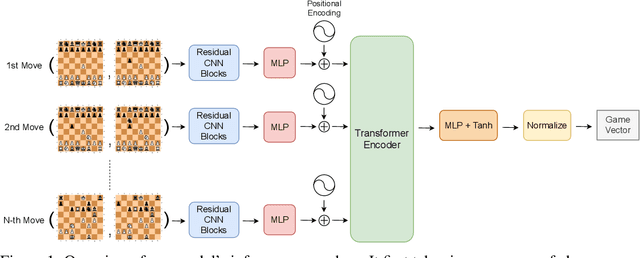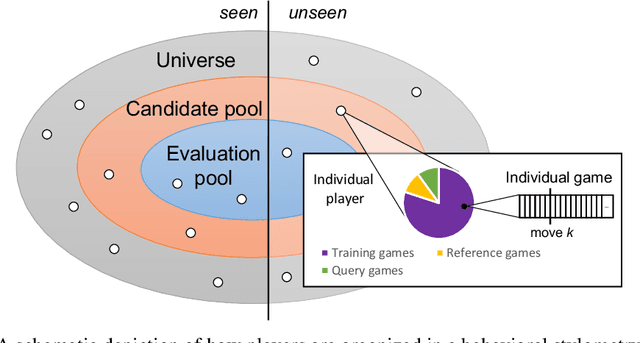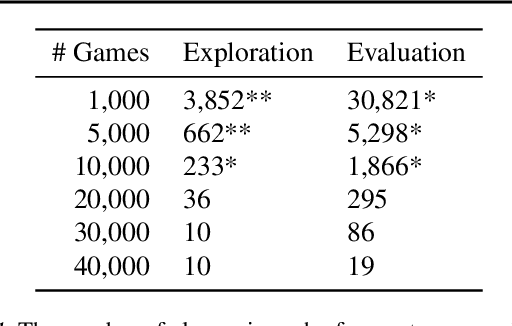Russell Wang
Detecting Individual Decision-Making Style: Exploring Behavioral Stylometry in Chess
Aug 02, 2022



Abstract:The advent of machine learning models that surpass human decision-making ability in complex domains has initiated a movement towards building AI systems that interact with humans. Many building blocks are essential for this activity, with a central one being the algorithmic characterization of human behavior. While much of the existing work focuses on aggregate human behavior, an important long-range goal is to develop behavioral models that specialize to individual people and can differentiate among them. To formalize this process, we study the problem of behavioral stylometry, in which the task is to identify a decision-maker from their decisions alone. We present a transformer-based approach to behavioral stylometry in the context of chess, where one attempts to identify the player who played a set of games. Our method operates in a few-shot classification framework, and can correctly identify a player from among thousands of candidate players with 98% accuracy given only 100 labeled games. Even when trained on amateur play, our method generalises to out-of-distribution samples of Grandmaster players, despite the dramatic differences between amateur and world-class players. Finally, we consider more broadly what our resulting embeddings reveal about human style in chess, as well as the potential ethical implications of powerful methods for identifying individuals from behavioral data.
Learning Personalized Models of Human Behavior in Chess
Aug 23, 2020
Abstract:Even when machine learning systems surpass human ability in a domain, there are many reasons why AI systems that capture human-like behavior would be desirable: humans may want to learn from them, they may need to collaborate with them, or they may expect them to serve as partners in an extended interaction. Motivated by this goal of human-like AI systems, the problem of predicting human actions -- as opposed to predicting optimal actions -- has become an increasingly useful task. We extend this line of work by developing highly accurate personalized models of human behavior in the context of chess. Chess is a rich domain for exploring these questions, since it combines a set of appealing features: AI systems have achieved superhuman performance but still interact closely with human chess players both as opponents and preparation tools, and there is an enormous amount of recorded data on individual players. Starting with an open-source version of AlphaZero trained on a population of human players, we demonstrate that we can significantly improve prediction of a particular player's moves by applying a series of fine-tuning adjustments. The differences in prediction accuracy between our personalized models and unpersonalized models are at least as large as the differences between unpersonalized models and a simple baseline. Furthermore, we can accurately perform stylometry -- predicting who made a given set of actions -- indicating that our personalized models capture human decision-making at an individual level.
 Add to Chrome
Add to Chrome Add to Firefox
Add to Firefox Add to Edge
Add to Edge